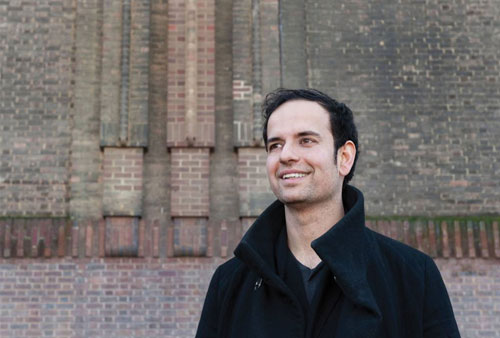|
|
The South
Asian Life & Times - SALT |
|
|||
|
Contents Adventure
Art
-
Dongria Kondh
|
|
||||
|
Tino Sehgal – Dematerialising Art
Photograph courtesy: Andrew Dunkley, Tate Photography “I'm
not against material things – I just don't work with them." The 37-year-old, born to a Punjabi Indian
father and a German mother, came this close to winning the 2013 Turner
prize. Many expected Tino Sehgal to win. Sehgal, a Conceptualist, creates art that does not
require any material. He does not believe in burdening society with
additional objects in the name of art. He does believe that the
overproduction of material things is the cause of “bad ecology, bad
economics and bad values.” Nor does he allow his work to be photographed.
There are no accompanying catalogues or press releases. He works only with
human clay – real human beings creating living sculpture. “His work
crystallizes and disperses again, so there is no trace left at all… His work
resides in the time and space it occupies; in the bodies and voices of the
performers; in memory and its reception.” His work is formed of people, not
of metal or stone. Sehgal’s art is made up almost entirely of social
encounters. Over a decade long career, Sehgal has produced silent and
sculptural works - like “Kiss”- and also “constructed situations” – like
“This Situation” and “This is Exchange”– where visitors often interact with
the models in the act. His work has elements of theatre and dance, though
Sehgal insists his work is art, not theatre - a performance is for a short
duration, whereas a Sehgal work is on display as long as the venue is open.
Tino Sehgal packed the Turbine Hall in Tate Modern with storytellers in
2012. Sehgal sells his works (that is, the right to
perform them) as editions - at prices between $85,000 and $145,000. His work
is owned by a number of museums. Tate bought ‘This is Propaganda’ in 2005.
The Museum of Modern Art NY bought “Kiss” in 2008 in a transaction that,
according to the museum’s director, was “one of the most elaborate and
difficult acquisitions we have ever made.” Guggenheim bought one of four
available editions of ‘This Progress’ in 2010. There are few private
collectors. The sale of a Sehgal piece is conducted orally –
there is no written contract, only a witness. The buyer has the right to
install it any number of times but under Sehgal’s supervision. The buyer,
however, is not allowed any documentation. He has had solo shows since his mid-20s and is a
regular on the international biennial circuit. Sehgal was born in London
and raised primarily in Dusseldorf and Paris.
He
did not train as an artist - instead he studied dance and political economy,
in Berlin and Essen. Jens Hoffman, the former
curator of the Institute of Contemporary Arts, who discovered Sehgal as a
dancer in the Nineties, says “He doesn’t want to be famous, he doesn’t want
to make money… I think Tino’s real goal is to be known as someone who has
changed the course of art, or maybe something beyond that….There is only one
artist in a generation like him.”
|
|||||
|
Copyright © 2000 - 2014 [the-south-asian.com]. Intellectual Property. All rights reserved. |
|||||
